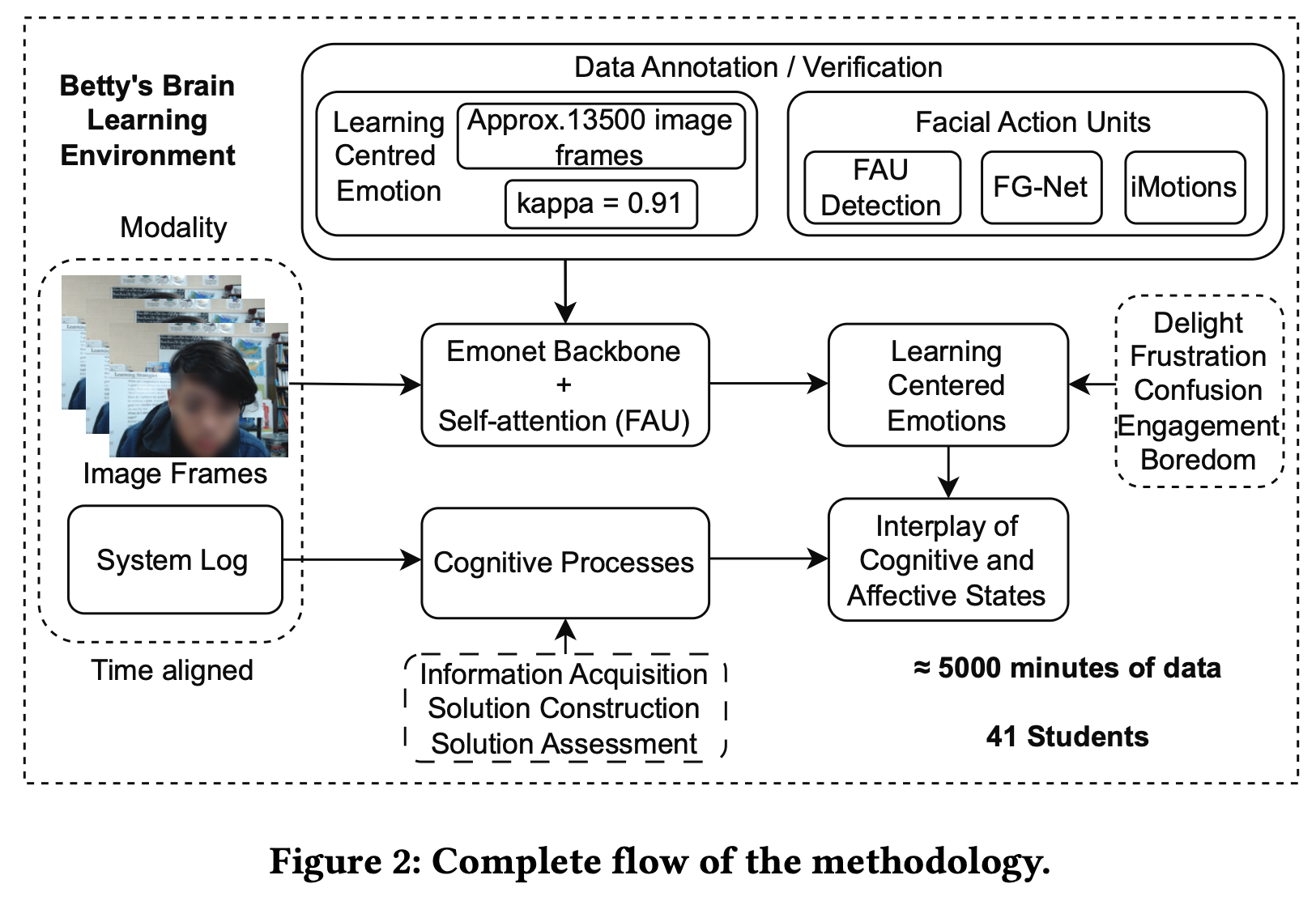Ashwin, T.S.; Biswas, Gautam. “Relating Students Cognitive Processes and Learner-Centered Emotions: An Advanced Deep Learning Approach.” ACM International Conference Proceeding Series, 2024, pp. 575-584, https://doi.org/10.1145/3678957.3685751.
Understanding how students regulate their learning, especially in open-ended learning environments, requires looking at both their thinking processes and emotional states. Emotions like excitement, engagement, boredom, frustration, and confusion play a big role in learning, but it’s hard to detect these feelings through facial expressions in middle school students, mainly because there aren’t enough relevant databases. This study introduces a new method using the EmoNet framework, which has been enhanced with advanced self-attention networks, to better detect and understand these learning-related emotions. We studied the emotional and thinking patterns of 41 middle school students in an open-ended learning environment and found clear emotional patterns that were strongly connected to their performance in various cognitive tasks. By creating a dataset from ten students, our model achieved an accuracy of 85%, which is a significant improvement over previous models. These findings open the door to creating future educational tools that can adjust to both students’ emotions and cognitive states, helping to improve their overall learning experiences and academic results.
